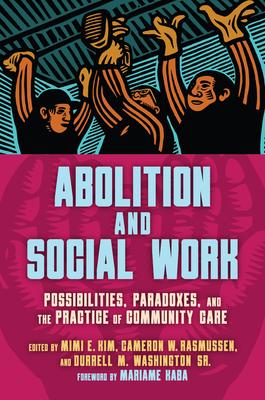A critical anthology exploring the debates, conundrums, and promising practices around abolition and social work in academia and within impacted communities.
Within social work--a profession that has been intimately tied to and often complicit in the building and sustaining of the carceral state--abolitionist thinking, movement-building, and radical praxis are shifting the field. Critical scholarship and organizing have helped to name and examine the realities of carceral social work as a form of "soft policing." For radical social work, abolition moves beyond critique to the politics of possibility.
Featuring a foreword by Mariame Kaba, Abolition and Social Work offers an orientation to abolitionist theory for social workers and explores the tensions and paradoxes in realizing abolitionist practice in social work--a necessary intervention in contemporary discourse regarding carceral social work, and a compass for recentering this work through the lens of abolition, transformative justice, and collective care.

Abolition and Social Work: Possibilities, Paradoxes, and the Practice of Community Care
A critical anthology exploring the debates, conundrums, and promising practices around abolition and social work in academia and within impacted communities.
Within social work--a profession that has been intimately tied to and often complicit in the building and sustaining of the carceral state--abolitionist thinking, movement-building, and radical praxis are shifting the field. Critical scholarship and organizing have helped to name and examine the realities of carceral social work as a form of "soft policing." For radical social work, abolition moves beyond critique to the politics of possibility.
Featuring a foreword by Mariame Kaba, Abolition and Social Work offers an orientation to abolitionist theory for social workers and explores the tensions and paradoxes in realizing abolitionist practice in social work--a necessary intervention in contemporary discourse regarding carceral social work, and a compass for recentering this work through the lens of abolition, transformative justice, and collective care.